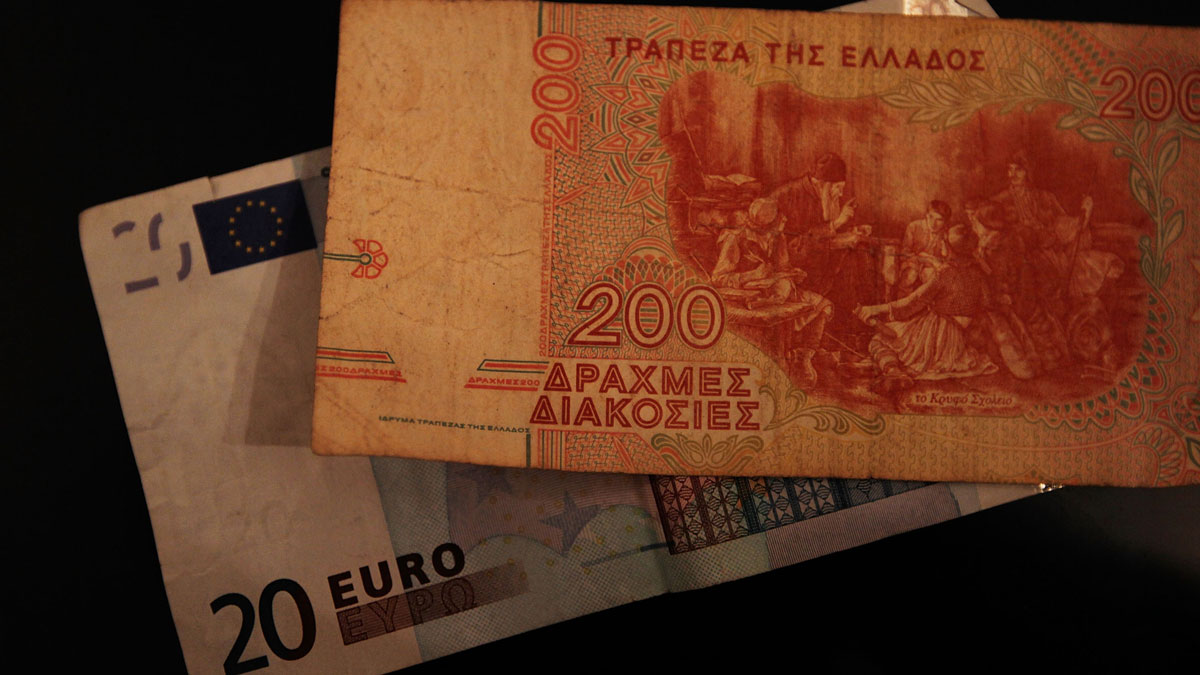
Greek crisis: a case of history repeating itself
- Select a language for the TTS:
- UK English Female
- UK English Male
- US English Female
- US English Male
- Australian Female
- Australian Male
- Language selected: (auto detect) - EN
Play all audios:
Greece's current crisis may look like a one-off – but there's a cyclical element to its wild swings between optimism and despair. Yesterday was no different. Just hours before the
bailout deal expired and Greece went into arrears, news came through that Athens has proposed a new two-year bailout to break the impasse. That could yet provide the basis for an agreement
to prevent a 'no' vote precipitating a so-called Grexit. Even if Greece does end up leaving the euro, its fate would not be unprecedented. Several times before, Greece has faced
the dire economic consequences many are threatening if the country fails to reach an agreement with its creditors over the next few days. SUBSCRIBE TO THE WEEK Escape your echo chamber. Get
the facts behind the news, plus analysis from multiple perspectives. SUBSCRIBE & SAVE SIGN UP FOR THE WEEK'S FREE NEWSLETTERS From our morning news briefing to a weekly Good News
Newsletter, get the best of The Week delivered directly to your inbox. From our morning news briefing to a weekly Good News Newsletter, get the best of The Week delivered directly to your
inbox. CURRENCY COLLAPSE Greece was part of an earlier currency partnership, the Latin Monetary Union, from 1868 to 1908. It was also kicked out of that club, The Independent reports, after
it failed to adhere to fiscal rules designed to ensure currencies were "freely interchangeable" and to "foster monetary stability". Sound familiar? The precedents do not
end there. As with the euro Greece was a late joiner to a group which was initially launched by France in 1866 and which included at the outset Belgium, Italy and Switzerland. The union
later expanded and also comprised Romania, Bulgaria, Venezuela, Serbia and San Marino. Greece was admitted back into the union in 1910, but the whole house of cards collapsed in 1914 with
the outbreak of World War One. There have been plenty of comment articles in recent days predicting a similar fate for the euro, or at least giving this as a stated preference for what
Financial Times columnist Gideon Rachman brands a "failed economic experiment". INFLATION What about if Greece left and was faced with a rapid currency devaluation and rampant
inflation, as predicted by Bloomberg among others? Again, Greece has form. In fact, it suffered what CNBC claims is the fifth worst case of hyperinflation ever following its occupation by
Germany during the Second World War, with rates in 1943 and 1944 of 13,800 per cent. Similarities are again apparent, although the current economic malaise is not at all on the same scale.
The crisis was caused by an ineffectual tax collection by a puppet administration, which meant the country's budget deficit soared to 94 per cent and eventually peaked at over 99 per
cent. Productivity plummeted and the economy shrank from 67bn drachma in 1939 to around 20bn between 1942 and 1944. In fact, after the currency was rebased following the end of the
occupation in November 1944, Greece was again blighted by hyperinflation and rebased again when it joined the under the Bretton Woods fixed currency system – yes, another monetary union –
until it was abolished in 1973.